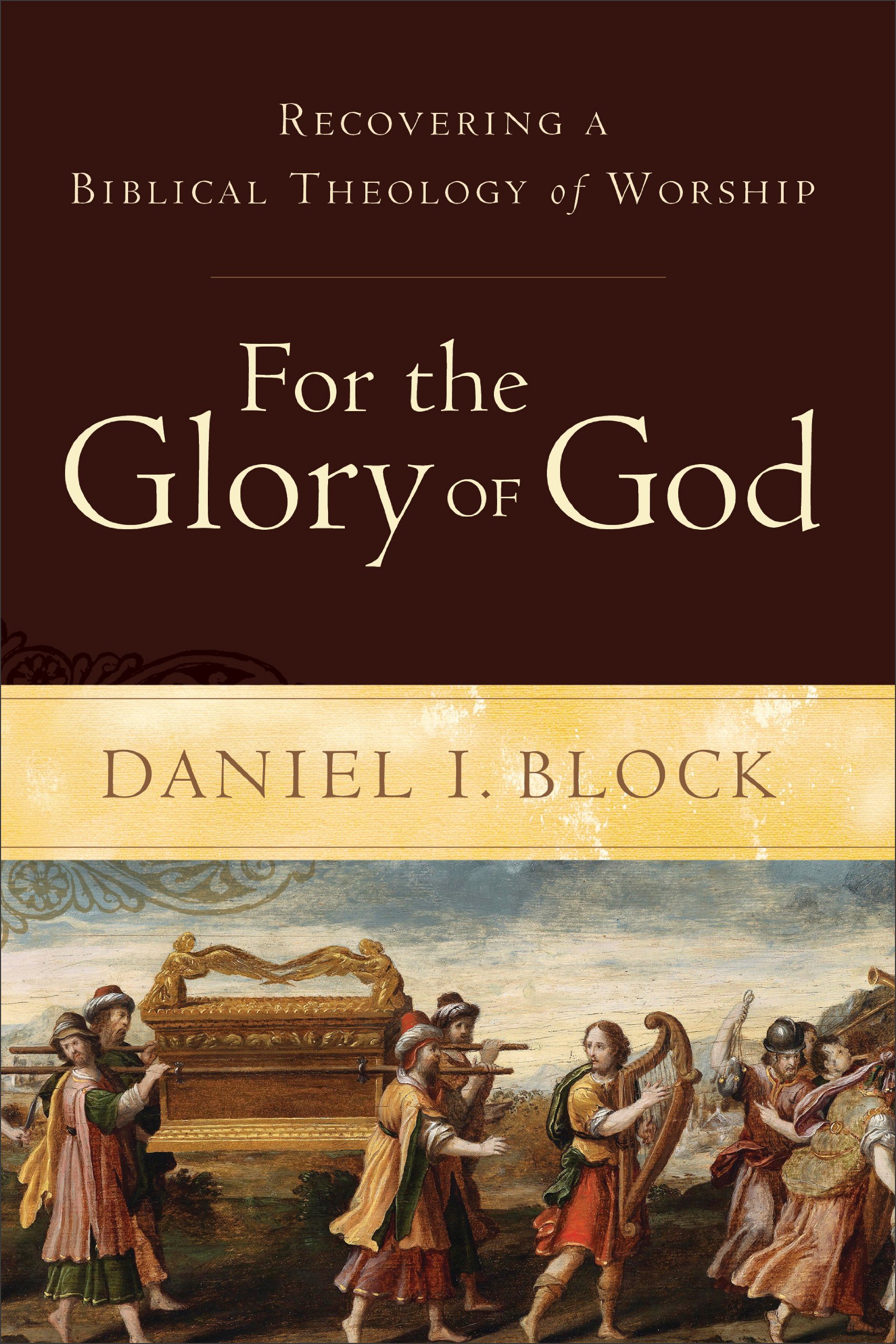“God is most glorified
and his people most transformed
when they worship him,
not according to the whims of a fallen human interpreter,
but in response to his revelation of himself
and in accordance with his will.”
This is the conviction underlying Daniel Block’s latest work, For the Glory of God: Recovering a Biblical Theology of Worship. Daniel Block, widely recognized for his lifetime of Old Testament scholarship, turns his attention here to a theme usually reserved for “practical theology” and provides a remarkable contribution to this area of study so often beset by controversy. Today Dr. Block is with us to talk about his book.
Books at a Glance:
Can you summarize for us what your book is all about?
Block:
Contemporary approaches to worship tend to derive their cues either from the prevailing culture outside the church or from the traditions that have been established within the church, many of which have their origins in earlier cultures. Against these grains, this books seeks to establish a thoroughly biblical understanding of worship.
Books At a Glance:
Why have you written this book? What specific concerns brought you to this study?
Block:
The study underlying the book was driven by several concerns. First, as intimated in the previous comment, I am concerned about the faulty understanding of worship and the utter pragmatism that drives much of the “worship industry” today. On the one hand, it tends to focus on “music as worship” [we should say “praise” music as worship; it has little room for lament], and assumes that the primary indicator of “successful” worship design is a full church building, rather than transformed worshipers. On the other hand, when the Scriptures are appealed to, worship discussions tend to involve a truncated canon, limited largely to the New Testament and the Psalms of the First Testament. When the discussions venture to the rest of the only Bible Jesus and the apostles had the Hebrew Bible is often presented as a negative foil against which to read the New Testament. A part of my concern is to recover the whole Bible as authoritative Scripture for Christians, and to demonstrate the importance of reading the First Testament in developing a theology of worship
Books At a Glance:
How long was this book in the making?
Block:
As a focused study the process that led to this book began in 1999 when I proposed a new course for the Southern Baptist Theological Seminary curriculum. In the 150-year history of this institution no course on “A Biblical Theology of Worship” had ever been taught. When I moved to Wheaton College in 2005, I was able to continue this study and to test my findings in formal classes for both undergraduate and graduate students, and in numerous seminars and conferences on worship in churches around the country.
Books At a Glance:
Your book has a helpful sense of progression. By way of overview, perhaps you could describe your approach for our readers.
Block:
After establishing a rationale for the book, I explore how the Scriptures speak about worship. Realizing that if our lives are not in order, nothing we do in formal and liturgical worship will have a positive response from God, I devote three or four chapters to the foundations for acceptable “cultic” worship [I use the word “cult” in its classical sense; those formal activities we engage in to relate to God]: Whom do we worship? Whose worship is acceptable to God? Daily life and work as worship. Then I move to “What we do in church”: the ordinances, the ministry of the Word, prayer, music, and sacrifices as worship. I conclude with discussions on the importance of worship space in expressing/developing a theology of worship, and the role of worship leaders in promoting reverence and awe among the worshipers, which are prerequisites to acceptable worship by any definition.
Books At a Glance:
Biblically, what is “worship”?
Block:
An examination of the Hebrew and Greek words that tend to be translated as “worship” reveals how far off base contemporary perceptions and practices are. Both Hebrew hištaḥăwâ And Greek proskyneō mean “to prostrate oneself physically before a superior,” which is seldom observed in the worship of people in free church traditions. But Biblical worship involves more than this physical gesture; it also involves other actions, all of which must arise from a particular “worshipful” disposition. Based on an analysis of the biblical words for worship I arrive at this explanation — it is not really a definition: “True worship involves reverential acts of homage and submission before the divine Sovereign in response to his gracious revelation of himself and in accord with his will.” The regular gatherings of believers for formal worship are fundamental to a life of worship, but these should be construed as audiences with God, rather than him being our audience.
Books At a Glance:
Broadly speaking, what is different about worship in the New Testament as compared to that in the Old Testament?
Block:
The question is curious. Why don’t we ask, “In what ways does the theology of New Testament worship continue and reinforce the theology of the First Testament?” Since Luther — actually since the early church — theologians have tended to focus on discontinuities between the Testaments. And then we wonder why the First Testament has become a dead book in the church. The Scriptures tell a single story, of which the coming of Christ represents the climax and fulfillment. The New Testament does not tell an alternative story. Of course, this is not to say that worship did not change in the New Testament. With the death and resurrection of Christ, the shadow cultic expressions of worship of ancient Israel are all terminated; the Aaronic priesthood and the sacrifices have been rendered superfluous. Whereas First Testament worship was focused on YHWH, whom no one could see, New Testament worship focuses on Christ, YHWH incarnate in visible human flesh. In light of the incarnation we know much more clearly how forgiveness is achieved, but our experience of saving grace is the same as it was for the godly in Israel.
We need to stop speaking of New Testament worship as spiritual and internal, in contrast to First Testament worship, which was ritualistic and external. True Israelite saints worshiped “in spirit and in truth.” And Romans 12:1–2 does not represent a new paradigm of worship; this is precisely what Moses envisioned in Deuteronomy 6:4–5 and 10:12–11.
Books At a Glance:
There has been considerable discussion in some circles about the appropriateness of the word “worship” in describing our corporate church gatherings. Can you address this for us?
Block:
If we want to talk about “worship” that is biblical we should not begin our discussions with the English word. In the end it is irrelevant what the English word means. What matters is….
Editor’s Note: We will conclude our interview with Dr. Block here tomorrow.

